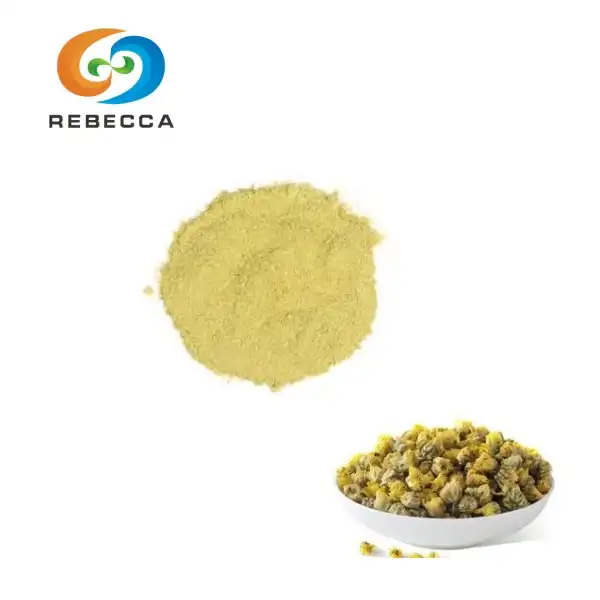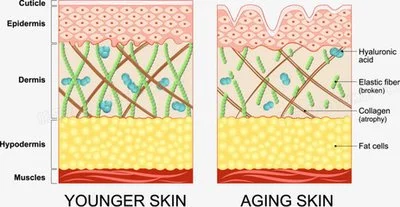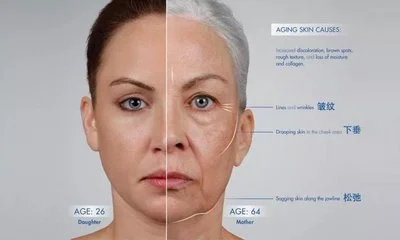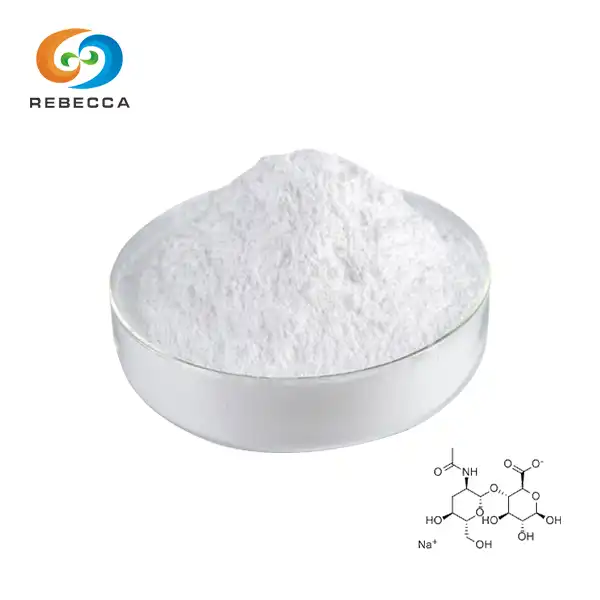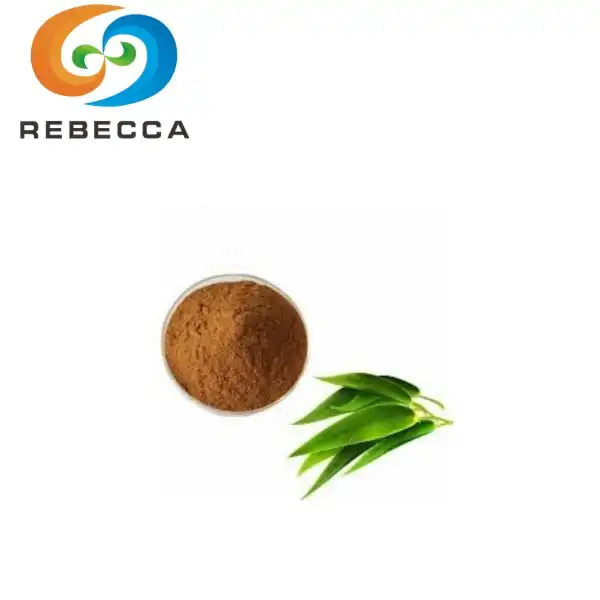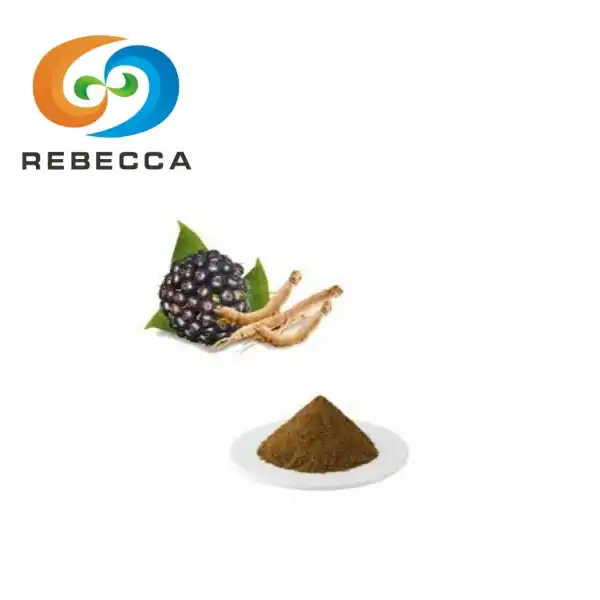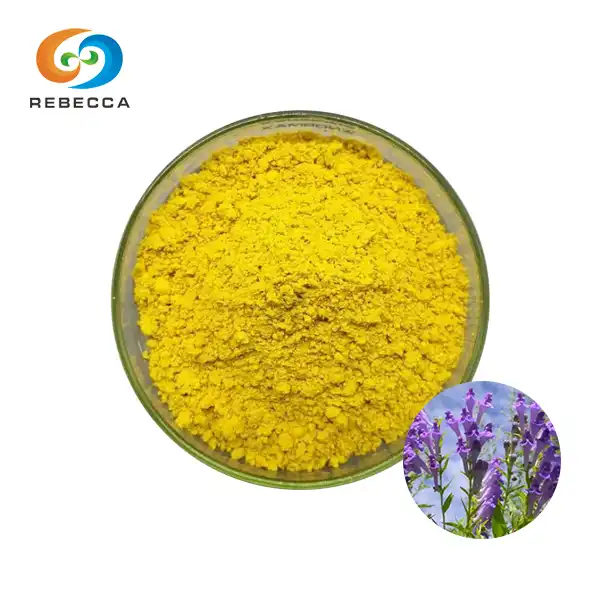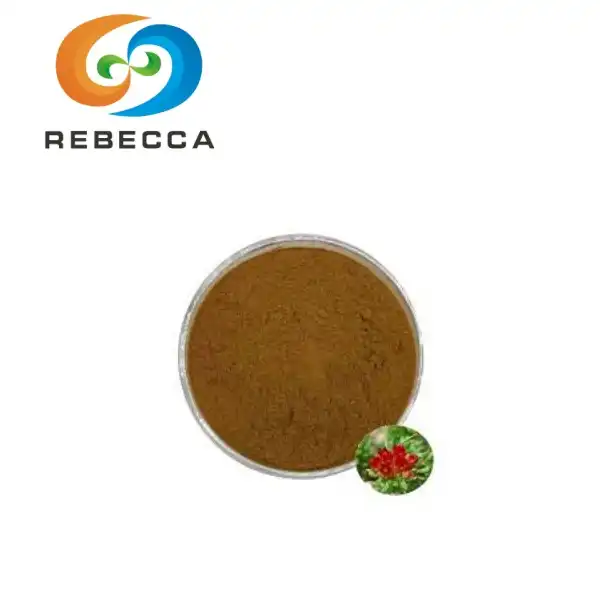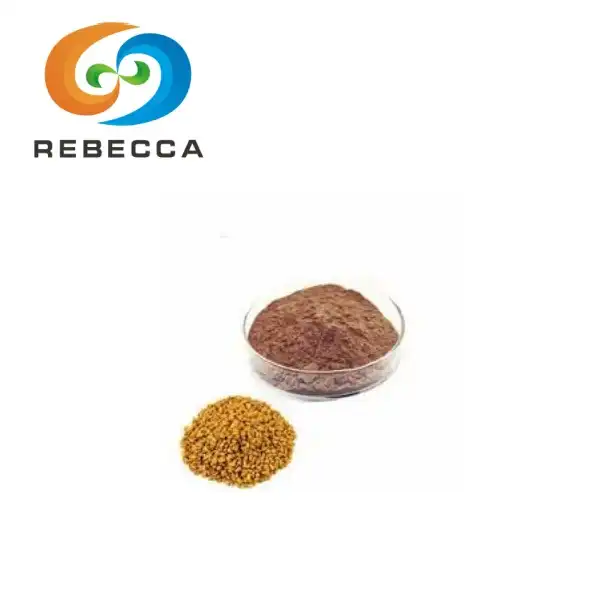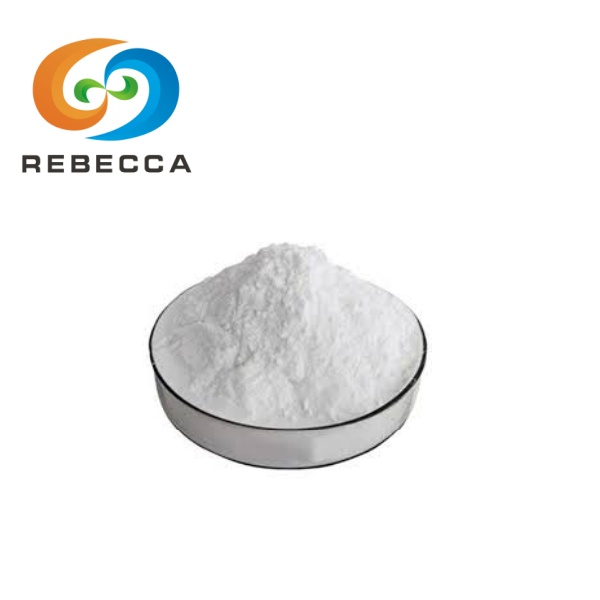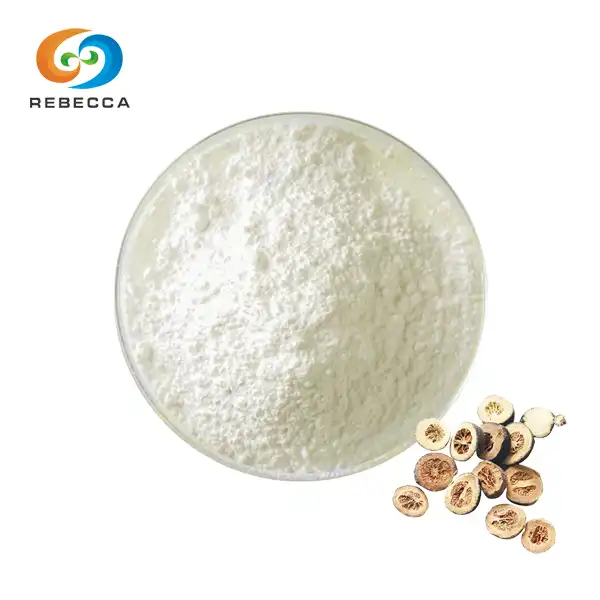Science Behind Chamomile's Age-Defying Properties
Chamomile, scientifically known as Matricaria chamomilla L., belongs to the Asteraceae family and boasts a rich composition of bioactive compounds. These compounds, particularly flavonoids and terpenoids, are believed to contribute to chamomile's potential anti-aging effects.
Apigenin: The Star Compound
Apigenin, a flavonoid found abundantly in chamomile and organic chamomile extract powder, has garnered significant attention in the scientific community. Research suggests that apigenin may play a crucial role in combating cellular aging through various mechanisms:
- Antioxidant Activity: Apigenin neutralizes harmful free radicals, protecting cells from oxidative stress-induced damage.
- DNA Protection: Studies indicate that apigenin may help safeguard DNA integrity, potentially slowing down the aging process at a cellular level.
- Anti-inflammatory Properties: By reducing inflammation, apigenin may mitigate age-related deterioration in various bodily systems.
Chamazulene: The Blue Wonder
Chamazulene, a compound responsible for the distinctive blue color in some chamomile preparations, exhibits potent anti-inflammatory and antioxidant properties. These characteristics may contribute to chamomile's potential anti-aging effects by:
- Reducing Oxidative Stress: Chamazulene's antioxidant activity helps neutralize free radicals, potentially slowing down cellular aging.
- Soothing Inflammation: By calming inflammatory responses, chamazulene may help maintain overall cellular health and longevity.
Chamomile tea antioxidant properties for youthful skin
The skin, our body's largest organ, often bears the most visible signs of aging. Chamomile tea's antioxidant properties may offer significant benefits for maintaining youthful, radiant skin.
Collagen Preservation
Collagen, a protein crucial for skin elasticity and firmness, tends to degrade as we age. The antioxidants in chamomile tea may help preserve collagen by:
- Protecting Against Free Radical Damage: By neutralizing free radicals, chamomile's antioxidants may prevent premature collagen breakdown.
- Supporting Collagen Synthesis: Some studies suggest that chamomile compounds may stimulate collagen production, promoting skin elasticity.
Skin Barrier Function
A healthy skin barrier is essential for retaining moisture and protecting against environmental stressors. Organic chamomile extract powder can support this by soothing irritation and helping to strengthen the skin's natural defenses. Chamomile tea may contribute to improved skin barrier function through:
- Anti-inflammatory Effects: By reducing skin inflammation, chamomile may help maintain the integrity of the skin barrier.
- Hydration Support: Some components in chamomile tea may enhance the skin's ability to retain moisture, promoting a plump, youthful appearance.
UV Protection
Sun exposure is a primary contributor to premature skin aging. While not a substitute for sunscreen, chamomile tea may offer some protection against UV-induced damage:
- Antioxidant Shield: The antioxidants in chamomile may help neutralize free radicals generated by UV exposure.
- DNA Protection: Some studies suggest that chamomile compounds may help prevent UV-induced DNA damage in skin cells.
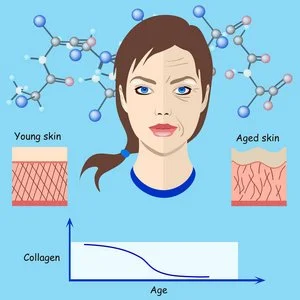
Debunking 3 Myths About Chamomile and Aging
As with many natural remedies, several myths have emerged regarding chamomile tea and its effects on aging. Let's examine and debunk three common misconceptions:
Myth 1: Chamomile Tea is a Miracle Anti-Aging Elixir
While chamomile tea does possess potential anti-aging properties, it's not a magical solution that can instantly reverse the aging process. The reality is:
- Gradual Effects: Any potential anti-aging benefits from chamomile tea are likely to be subtle and cumulative over time.
- Part of a Holistic Approach: Chamomile tea and organic chamomile extract powder should be considered as part of a comprehensive anti-aging strategy that includes a balanced diet, regular exercise, and proper skincare.
Myth 2: Drinking Chamomile Tea Alone is Enough for Anti-Aging Benefits
Simply consuming chamomile tea may not be sufficient to reap its full potential anti-aging benefits. Consider these factors:
- Topical Application: Some studies suggest that applying chamomile extract directly to the skin may yield more pronounced anti-aging effects.
- Concentration Matters: The concentration of active compounds in a cup of chamomile tea may vary, and higher concentrations might be necessary for significant anti-aging effects.
Myth 3: Chamomile Tea Has No Side Effects
While chamomile tea is generally considered safe for most people, it's not without potential side effects:
- Allergic Reactions: Individuals allergic to plants in the Asteraceae family (e.g., ragweed, chrysanthemums) may experience allergic reactions to chamomile.
- Drug Interactions: Chamomile may interact with certain medications, including blood thinners and sedatives.
- Pregnancy Concerns: Pregnant women should consult their healthcare provider before consuming chamomile tea regularly.
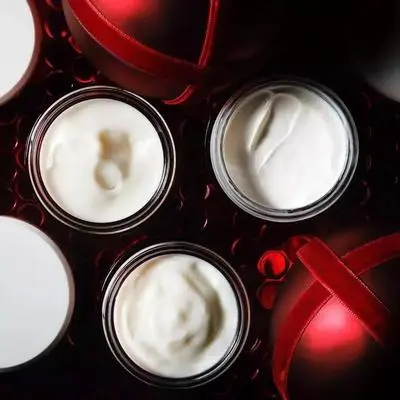
Conclusion
While chamomile tea and organic chamomile extract powder show promising potential in the realm of anti-aging, it's essential to approach their benefits with a balanced perspective. The compounds found in chamomile, particularly apigenin and chamazulene, offer intriguing possibilities for supporting skin health and overall cellular longevity. However, more research is needed to fully understand the extent of chamomile's anti-aging effects.
As we continue to explore the fascinating world of natural remedies and their impact on aging, it's crucial to remember that no single ingredient or practice can completely halt the aging process. A holistic approach that combines a healthy lifestyle, proper skincare, and mindful consumption of beneficial herbs like chamomile is likely to yield the best results in maintaining a youthful appearance and vitality.
For those interested in incorporating high-quality chamomile extract into their anti-aging regimen, consider exploring organic chamomile extract powder. This concentrated form may offer higher levels of beneficial compounds compared to traditional tea preparations. To learn more about our premium organic chamomile extract powder and its potential applications in anti-aging formulations, please contact us at information@sxrebecca.com.
_1730691017423.webp)




